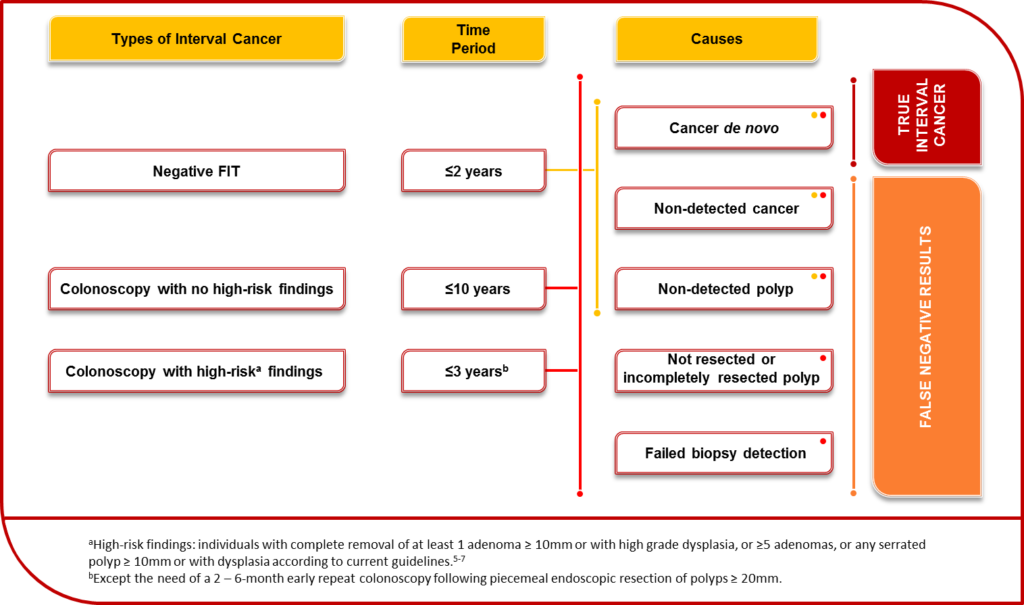Review of characteristics associated with interval cancers in the colorectal cancer screening program published
Tumors missed by screening tests are known as interval cancers and are diagnosed after a negative screening episode result but before the next cancer screening program invitation.
The Cancer Screening Unit team together with researchers from the Biomarkers and Susceptibility Unit of the Institut Català d’Oncologia have reviewed the current literature on interval colorectal cancer and its epidemiological, clinical and molecular characteristics.
The proportion of interval cancers identified by fecal occult blood testing in population-based colorectal cancer screening programs is approximately 15%, and slightly lower in successive rounds of screening. According to clinical characteristics, interval cancers are more likely to appear in women and to be localized to the right colon. At the molecular level, studies have shown that interval cancers have a higher proportion of microsatellite instability and elevated levels of DNA methylation compared to cancers detected in the screening process.
Knowing the associated characteristics of interval colorectal cancers compared to screen-detected cancers could improve our understanding of carcinogenic pathways and interval cancers could be prevented by risk stratification, offering screening strategies tailored to the individual risk of developing colorectal cancer.






No Comment